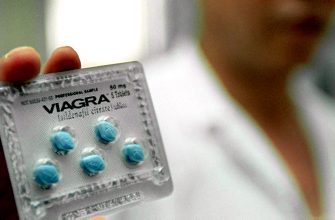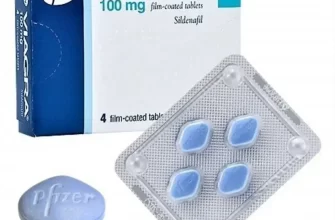Consider a low-dose isotretinoin regimen for persistent acne. This approach often delivers significant improvements with fewer side effects than higher doses. We’ll explore how this strategy works and what you need to know.
Low-dose Accutane therapy typically involves lower daily dosages, often adjusted based on individual responses and tolerance. This personalized approach allows doctors to minimize potential side effects while still achieving impactful results. Regular blood tests monitor liver function and lipid levels, ensuring safety throughout the treatment.
Remember, this treatment requires careful monitoring by a dermatologist. They’ll tailor the dosage and duration to your specific needs, considering your skin type, acne severity, and overall health. Open communication with your doctor is key to maximizing benefits and minimizing any potential discomfort.
Key benefits often include reduced inflammation, improved skin texture, and a significant decrease in acne breakouts. However, individual results vary, and it’s crucial to have realistic expectations. Your dermatologist will discuss potential side effects and management strategies beforehand.
This approach isn’t a magic bullet; consistent use and adherence to the prescribed regimen are vital for success. Combine low-dose Accutane with a good skincare routine, focusing on gentle cleansers and moisturizers, for optimal outcomes. The results can be transformative, leading to clearer, healthier-looking skin.
- Low Dose Accutane Acne Treatment
- Managing Side Effects
- Treatment Duration and Results
- Understanding Low Dose Accutane: Benefits and Risks
- Benefits of Low-Dose Accutane
- Risks of Low-Dose Accutane
- Practical Considerations: Dosage, Duration, and Monitoring
- Dosage Adjustments
- Treatment Duration
- Monitoring for Side Effects
- Important Reminders
- Long-Term Effects
- Real-World Experiences and Long-Term Outcomes
Low Dose Accutane Acne Treatment
Low-dose isotretinoin (Accutane) offers a powerful acne treatment option for many, often resulting in clearer skin with fewer side effects compared to higher doses. Your dermatologist will determine the appropriate dosage based on your weight, skin type, and acne severity. Expect to take the medication daily, as directed. Regular blood tests monitor liver function and lipid levels throughout treatment, ensuring safety.
Managing Side Effects
Common side effects include dry skin, lips, and eyes. Use a gentle, fragrance-free moisturizer daily. Consider a lip balm with SPF protection. Artificial tears can alleviate dry eyes. Some individuals experience mild dryness of the nose and mouth; saline nasal spray and increased water intake often helps manage this. Remember, these side effects usually subside after treatment completion. Report any significant side effects, such as severe muscle or joint pain, immediately to your doctor.
Treatment Duration and Results
Treatment duration varies; your dermatologist will provide a personalized timeline based on your response. Typically, results are gradual, with improvement seen over several weeks or months. Consistent medication adherence is key. Maintaining a healthy lifestyle, including a balanced diet and adequate sun protection, complements treatment and supports skin health.
Understanding Low Dose Accutane: Benefits and Risks
Low-dose isotretinoin (Accutane) offers a powerful acne treatment option. It targets sebaceous glands, reducing oil production and preventing acne breakouts. Many patients experience significant improvement in moderate to severe acne with fewer side effects compared to higher doses. However, it’s vital to understand the potential risks.
Benefits of Low-Dose Accutane
Expect clearer skin. Studies show low-dose regimens frequently achieve substantial acne reduction. This often translates to improved confidence and reduced scarring. Furthermore, the lower dosage typically leads to milder side effects.
Risks of Low-Dose Accutane
Dry skin, lips, and eyes are common. Some experience nosebleeds or temporary hair thinning. Rare but serious side effects include elevated liver enzymes and depression. Regular blood tests and close monitoring by your dermatologist are necessary to mitigate these risks. Openly discuss any concerns or changes in mood with your doctor immediately. Pregnancy is absolutely contraindicated; reliable contraception is mandatory throughout treatment and for a month afterward.
Remember: Low-dose Accutane is a powerful medication requiring careful management. Your dermatologist will help determine if it’s the right option for you and will closely monitor your progress and well-being throughout the treatment.
Practical Considerations: Dosage, Duration, and Monitoring
Your dermatologist will determine the appropriate isotretinoin dosage based on your weight and the severity of your acne. Typical starting doses range from 0.5 to 1 mg/kg/day. This dose may be adjusted throughout treatment.
Dosage Adjustments
Expect regular follow-up appointments. Your doctor will monitor your progress and adjust your dosage accordingly. They might increase or decrease the dose depending on your response and side effects.
Treatment Duration
Treatment usually lasts 4-6 months, but can extend to 8-12 months for severe cases. Consistent medication adherence is key to achieving optimal results. Missing doses can significantly impact treatment efficacy.
Monitoring for Side Effects
- Dryness: Expect dry skin, lips, eyes, and nose. Use moisturizers liberally and lip balms regularly.
- Blood Tests: Regular blood tests are necessary to monitor liver function and lipid levels. These are crucial for your safety.
- Pregnancy Testing: For women of childbearing age, pregnancy tests are mandatory before starting and throughout the treatment. Isotretinoin is teratogenic.
- Mental Health: Some individuals experience mood changes. Report any unusual mood swings or depressive symptoms to your doctor immediately.
Important Reminders
- Always follow your doctor’s instructions precisely regarding medication dosage and frequency.
- Maintain open communication with your dermatologist about any concerns or side effects you experience.
- Use sunscreen daily with SPF 30 or higher, as isotretinoin increases sun sensitivity.
- Avoid waxing or laser treatments during and for several months after treatment.
Long-Term Effects
While most side effects subside after treatment ends, some individuals experience long-term dryness. Your dermatologist can provide guidance on managing this. Furthermore, maintaining a healthy lifestyle that includes a balanced diet and regular exercise is crucial for overall well-being.
Real-World Experiences and Long-Term Outcomes
Many individuals report significant improvements in acne severity after a course of low-dose Accutane. Clear skin is a common outcome, often lasting for years, even decades, in some cases. However, the duration of clear skin varies greatly.
Studies show that a significant percentage of patients achieve acne remission lasting at least five years. A smaller subset maintain clear skin for a much longer period, potentially indefinitely. The likelihood of long-term remission is influenced by factors such as the severity of initial acne and individual response to the medication.
Maintaining a consistent skincare routine post-treatment is crucial for preventing acne recurrence. This should include gentle cleansers, moisturizers, and possibly retinoids or other acne-fighting products as recommended by a dermatologist.
Some patients experience mild skin dryness or other side effects during treatment. These typically resolve once the medication is stopped. Severe side effects are less common but warrant immediate medical attention.
Long-term follow-up appointments with a dermatologist are recommended to monitor skin health and address any concerns. These visits allow for adjustments to treatment plans if necessary and provide peace of mind.
Individual experiences with low-dose Accutane vary widely. While many achieve long-lasting clear skin, some may experience only partial improvement or require additional treatments. Open communication with a healthcare provider throughout the process is key to managing expectations and achieving the best possible outcome.






